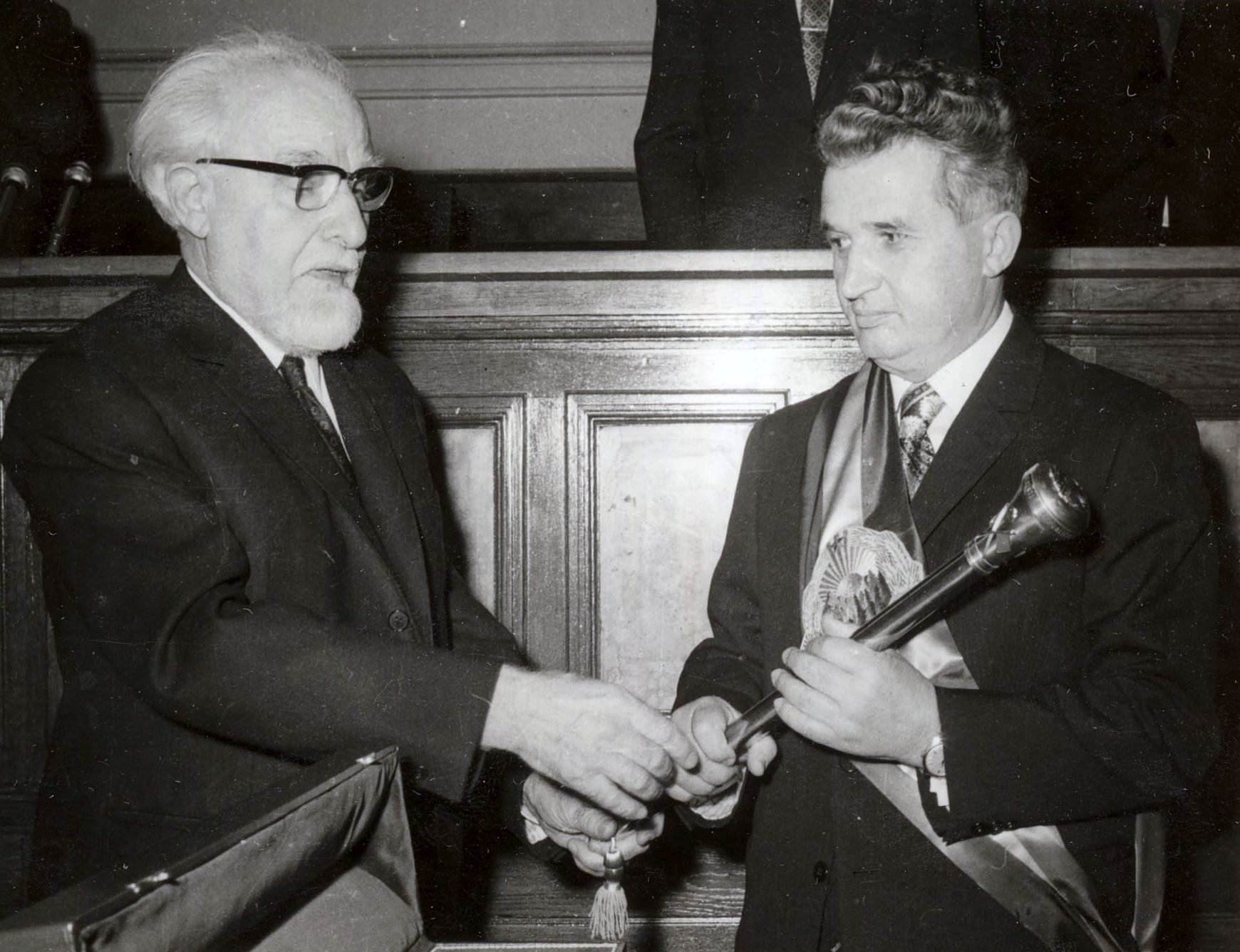|
1974 Romanian Presidential Election
A presidential election was held in the Socialist Republic of Romania on 28 March 1974. It was the first election held after the post of President of the Republic was created by an amendment to the Constitution earlier in the year. Nicolae Ceaușescu, incumbent General Secretary of the Romanian Communist Party and president of the State Council, was elected by the Great National Assembly as the first President of the Republic on 28 March 1974;Legea nr. 1/1974 privind modificarea Constitutiei Republicii Socialiste Romania, publicata in B. Of. nr. 45 din 28 martie 1974 (modifica Art. 43; 54; 57; 63; 64; 68; 73; introduce Art. 65^1; 69^1 - 69^6; inlocuieste un termen; dispune renumerotarea articolelor si republicarea) he was the only candidate. On 4 April 1974, the Communist Party daily ''Scînteia'' published a congratulatory telegram, in which Salvador Dalí actually mocked Ceaușescu on his "introducing the presidential scepter". Being successively re-elected, Ceaușescu served ... [...More Info...] [...Related Items...] OR: [Wikipedia] [Google] [Baidu] |
Nicolae Ceaușescu
Nicolae Ceaușescu ( , ; – 25 December 1989) was a Romanian communist politician and dictator. He was the general secretary of the Romanian Communist Party from 1965 to 1989, and the second and last Communist leader of Romania. He was also the country's head of state from 1967, serving as President of the State Council and from 1974 concurrently as President of the Republic, until his overthrow and execution in the Romanian Revolution in December 1989, part of a series of anti-Communist uprisings in Eastern Europe that year. Born in 1918 in Scornicești, Ceaușescu was a member of the Romanian Communist youth movement. Ceaușescu rose up through the ranks of Gheorghe Gheorghiu-Dej's Socialist government and, upon Gheorghiu-Dej's death in 1965, he succeeded to the leadership of the Romanian Communist Party as general secretary. Upon his rise to power, he eased press censorship and openly condemned the Warsaw Pact invasion of Czechoslovakia in his speech on 21 August ... [...More Info...] [...Related Items...] OR: [Wikipedia] [Google] [Baidu] |
Scornicești
Scornicești () is a town in Olt County, Romania, with a population of 11,766. The town administers 13 villages (Bălțați, Bircii, Chițeasca, Constantinești, Jitaru, Mărgineni-Slobozia, Mihăilești-Popești, Mogoșești, Negreni, Piscani, Rusciori, Șuica and Teiuș) and has a total area of 170 km² (65 sq. mi.), being the locality with the largest area in the county of Olt, surpassing even its capital Slatina. Scornicești is situated in the historical region of Muntenia. It officially became a town in 1989, as a result of the Romanian rural systematization program. History Scornicești was the birthplace of communist leader Nicolae Ceaușescu, who lived there until the age of 11, when he left for Bucharest to become a shoemaker. During his dictatorship, Ceaușescu wanted to make Scornicești a "model town" to house the newly created " Socialist Man". Consequently, in 1988, he began his plan by demolishing the traditional village houses and replacing them with apar ... [...More Info...] [...Related Items...] OR: [Wikipedia] [Google] [Baidu] |
1974 Elections In Europe
Major events in 1974 include the aftermath of the 1973 oil crisis and the resignation of President of the United States, United States President Richard Nixon following the Watergate scandal. In the Middle East, the aftermath of the 1973 Yom Kippur War determined politics; following List of Prime Ministers of Israel, Israeli Prime Minister Golda Meir's resignation in response to high Israeli casualties, she was succeeded by Yitzhak Rabin. In Europe, the Turkish invasion of Cyprus, invasion and occupation of northern Cyprus by Turkey, Turkish troops initiated the Cyprus dispute, the Carnation Revolution took place in Portugal, and Chancellor of Germany, Chancellor of West Germany Willy Brandt resigned following an Guillaume affair, espionage scandal surrounding his secretary Günter Guillaume. In sports, the year was primarily dominated by the 1974 FIFA World Cup, FIFA World Cup in West Germany, in which the Germany national football team, German national team won the championshi ... [...More Info...] [...Related Items...] OR: [Wikipedia] [Google] [Baidu] |

.jpg)

